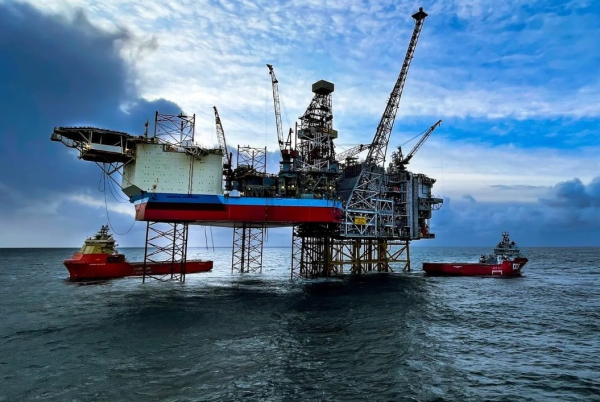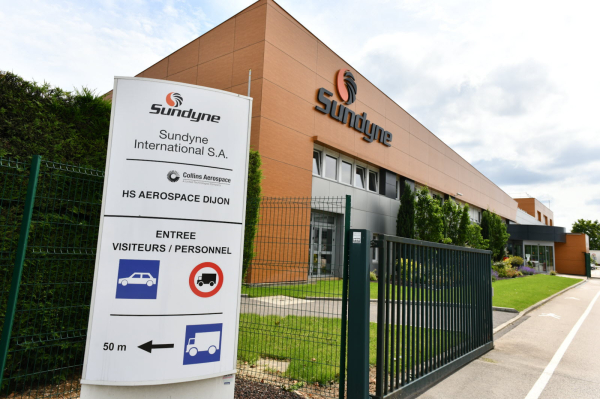
The Chinese government has now halted bilateral trade with Lithuania (Photo: ec.europa.eu)
I was in Vilnius back in mid-November, speaking on standing up to authoritarianism at a democracy conference organised by the audacious young foreign minister Gabrielius Landsbergis. Meanwhile and elsewhere in town, a small name plate went up in an office building.
Normally, history is not made by office names but this one, listing the Taiwanese Representative Office in Vilnius, sparked a large-scale expansion of China’s economic warfare against democracies.
-

Previous Chinese boycotts have occurred in 2008, when the Dalai Lama (pictured) met with then French president Nicolas Sarkozy (Photo: European Parliament)
The Chinese government has halted bilateral trade with Lithuania.
It also puts pressure on other European companies such as German car part manufacturer Continental to cut their supply chains from Lithuania. China’s actions amount to a fundamental attack on the DNA of the European Union: the internal market.
Initially in November, it was the US that stepped up and provided urgent export credits to Lithuania. Recently, Taiwan has also stepped up with increased economic cooperation including possible on making Lithuania a hub for its coveted semiconductor industry. The EU and member states were missing in action.
At first, the thinking in Berlin and Paris – trickling over into the Brussels bubble – was that Lithuania had pushed this issue too hard on their own.
Adding Taiwan instead of Taipei in the office name was a step further than usual practice but in no way in infringement of the EU’s ‘One-China’ policy.
That internal wrangling misses the larger point that China – under all circumstances – keeps using market access and trade as bullying tools against Europeans.
The French, currently holding the EU presidency, have added the concept ‘strategic autonomy’ to the European lingo. Defending Lithuania is a test case for if the EU can provide a strategic response to economic coercion by China.
And it is a recurrent phenomenon; going back to the last French presidency of the EU in 2008 where the Chinese boycotted French goods and Carrefour shops over Sarkozy’s meeting with Dalai Lama.
And it will not be last – unless the EU replies forcefully back.
China argues that this is a bilateral matter, and the EU should not meddle. That hypocrisy of that position is undermined by China’s own actions trying to destabilise the internal market by putting pressure on other European business to cut off Lithuania in the supply chain to retain market access in China.
Test case for new German government
It is also a test case for the new German traffic-light coalition government’s policy on China, and how strong the Greens come through with a tougher line on China. That’s why it was a welcome sign to see a German state secretary, Franziska Brantner traveling to Vilnius this week with a clear message of EU-solidarity and a warning shout out to the Chinese that the ‘internal market is sacred’.
Now it is time to flesh that out in policy. It should be the EU and member states stepping in with credit and loans to Lithuania.
We, the citizens, can do our part. It should be European voters and consumers that should start buying Lithuanian goods like the #Freedomwine campaign supporting Australian wine after a similar irrational Chinese boycott.
Governments should explain to their companies that their response to Chinese pressure matters beyond the financial bottom line. It is part of a bigger picture defence of our fundamental operating system: democracy and liberal values.
We also need to speak from a position of strength. We should be inspired by Nato’s military ‘Article Five’ which says an attack on one Nato ally is an attack on all. Expanding that approach to the economic area, is now key on behalf of Lithuania and the sanctity of the European internal market.
That means several things. Th EU should be pushing this issue in the WTO. China seems in fundamental breach of their access 20 years ago. It means quickly agreeing to the EU-Commission’s proposed anti-coercion instrument.
But Lithuania can’t just wait for new EU legislation.
The EU should get member states’ approval to negotiate tough deadlines for China to end the economic blockade of Lithuania or face gradual restrictions of China’s own access to the internal market.
That’s leverage which the world’s largest economic bully can understand. That would show genuine European strategic autonomy and capacity – and fittingly during a French presidency.
Source: euobserver.com



